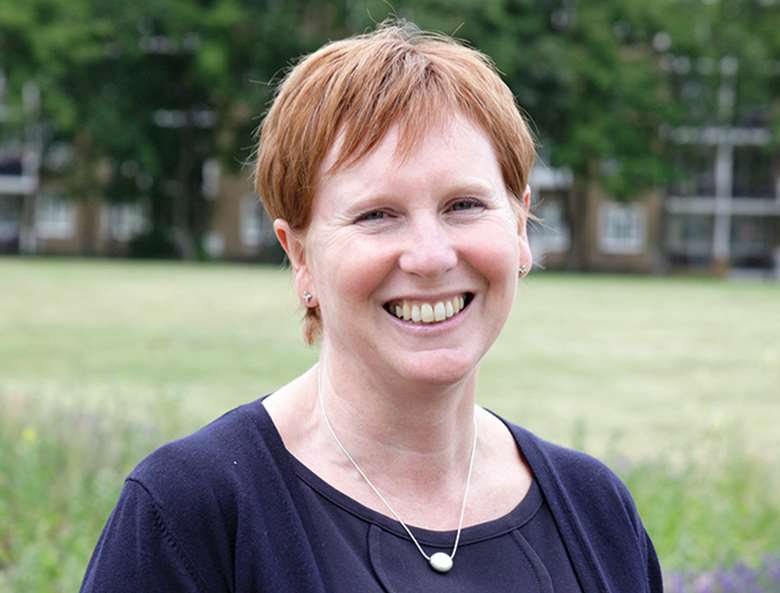Unexpected opportunity: Helen Marshall, chief executive, Brook
Derren Hayes
Tuesday, February 28, 2017
Derren Hayes talks to Helen Marshall, chief executive of youth health charity Brook.

It is nearly a year since Helen Marshall left youth charity Ambition to take the helm at health charity Brook, which provides sexual health services and advice for young people up to 25 through a network of drop-in clinics. The move was announced in the middle of merger talks between Ambition, formerly known as Clubs for Young People, and the National Council for Voluntary Youth Services (NCVYS), a move that went ahead last April.
How did your move to Brook come about?
I wasn't looking for another job, but when Brook approached me I was interested in the organisation and role. It is a bigger organisation [than Ambition] and had some challenges. It felt like a good fit for me.
I thought very carefully about moving from Ambition - it had been a lot of hard work and we had just announced the merger with NCVYS, but the role at Brook doesn't come about very often.
What were the challenges Brook faced?
It had been without a permanent chief executive for a while, had been running a deficit for three years and needed to look at changing its services.
How have you approached addressing these?
The previous strategic plan dated from 2009. We needed a new direction for the organisation and will unveil our new strategic aims in March.
Brook was founded in 1964 - when it was illegal to offer contraception to young women - and has a long history of taking risks.
It is also an innovative organisation, but we needed to alter how we engaged with young people as their lives have massively changed. As young people's online lives have grown so have the risks, whether from cyberbullying or grooming, and the anxiety levels linked to that.
We have invested in digital technology as a result. Ask Brook [its advice service] has moved from a text chat to online service with enquiries rising by 60 per cent since then.
Other than Ask Brook, how do young people engage with the organisation?
We've recently expanded our education work and 60 per cent of young people now work with us through our education service. Education is a safe environment for young people. It also introduces them to Brook which can then enable them to access clinics.
Teachers feel unprepared and lacking skills to deal with sexual health issues, but we know young people need good quality sex and relationships education (SRE) in order to keep themselves safe and recognise what a healthy relationship looks like.
We have developed Brook Learn, which is a basic online guide aimed at professionals working with young people, such as teachers and youth workers, on how to deliver good SRE.
Why do you think children's professionals lack skills on SRE?
It is completely shocking that SRE is not taught compulsorily in schools. We want young people to have the skills and confidence to keep themselves safe. Half of young people don't have proper SRE in the classroom and parents may not have the knowledge or skills to do that. The more knowledge young people have the healthier choices they will make.
I think politicians are starting to listen and the Children and Social Work Bill currently going through parliament provides an opportunity to address this. Thanks to MPs like Stella Creasy and Maria Miller there's a drive to want compulsory SRE. It will be really disappointing if this doesn't happen.
With Brook running a deficit recently how do you intend to improve its finances?
I'm confident we'll get back into the black - our increased education work opens new income streams for us, we're developing relationships with corporate partners and working with employers to support staff wellbeing.
We've reviewed our service model to ensure we are meeting young people's needs and that we remain competitive. It is a competitive delivery environment with private companies delivering SRE services.
We are now working with community organisations to deliver some of our services. Some youth organisations will be doing this work already, but this will enable Brook to reach into areas where we perhaps don't have a presence.
We are also working with young people on a project about sexual consent through Everton Football Club, and Brook will look to deliver training for council staff, such as bus drivers, on exploitation issues.
What are the next steps for Brook's development?
Last month we appointed a new ambassador, vlogger Hannah Witton, who has 280,000 subscribers to her YouTube channel. She will help us reach some of those young people we wouldn't otherwise.
In March, we are also unveiling our new branding and strategic aims which will set out how we want to develop and grow over the next three years. We'll be focusing on new digital technologies, shouting louder about young people's health and investing in SRE training for professionals working with young people.
HELEN MARSHALL CV
- April 2016 - present: Chief executive, Brook
- April 2010 - March 2016: Chief executive, Ambition
- July 2008 - April 2010: Director, Carter Marshall Limited
- September 1998 - June 2008: Head of education, training & employment (2006 - 2008) and head of foyers (1998 - 2006), East Thames Group
- January 1986 - August 1997: Professional indemnity director, Thomas Miller & Co




